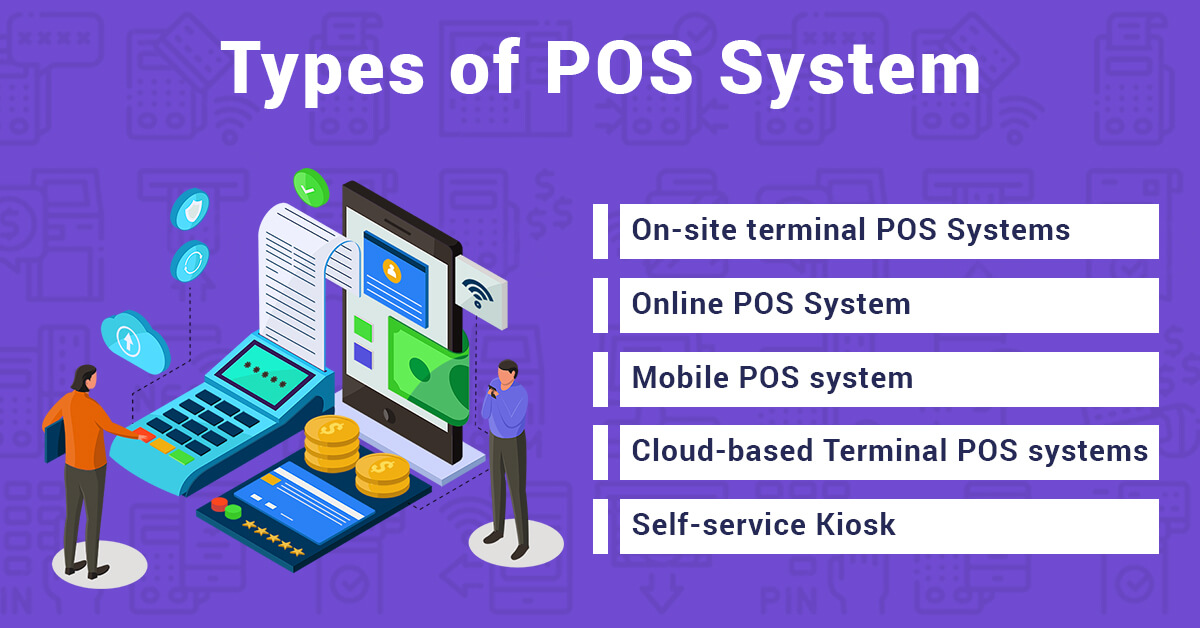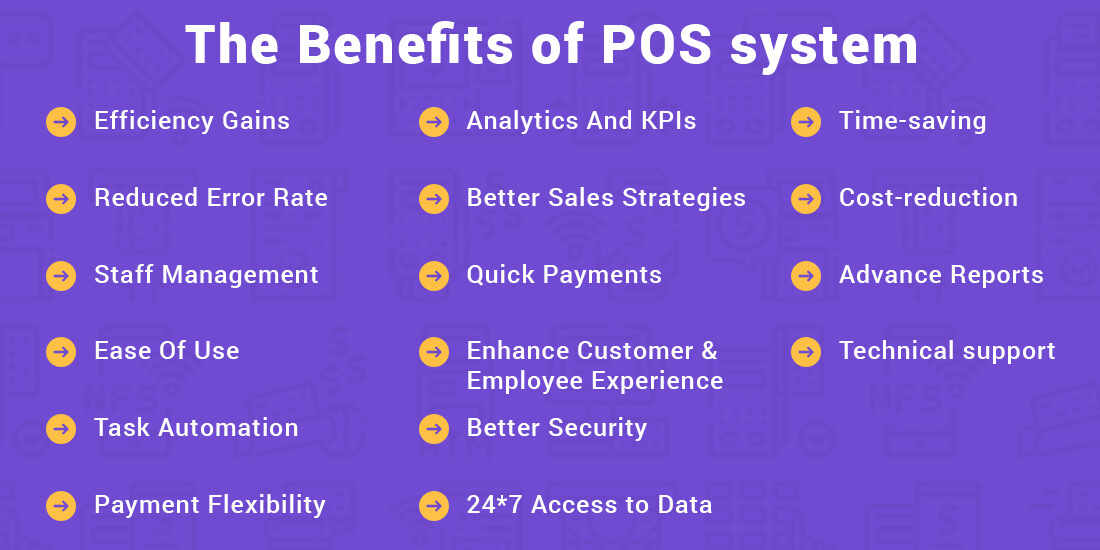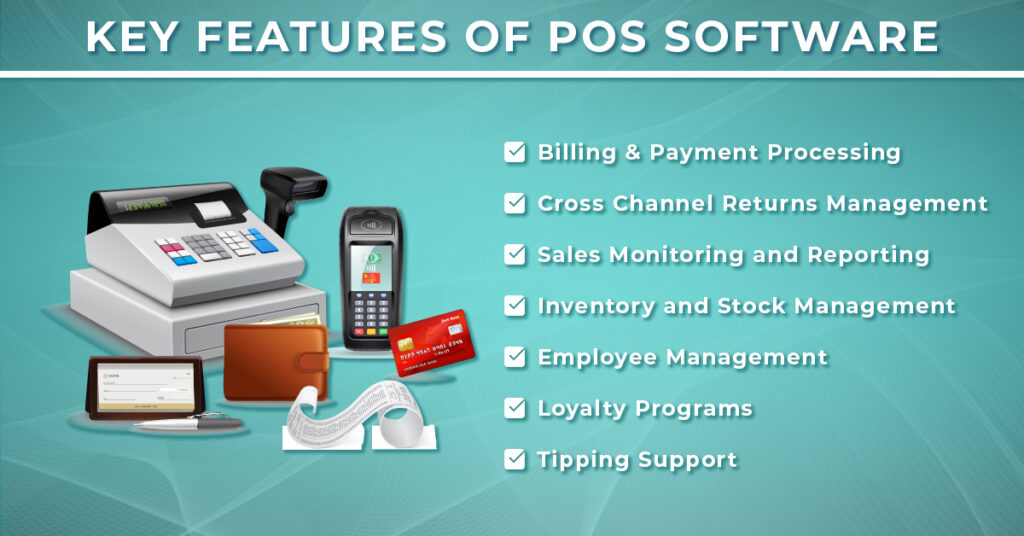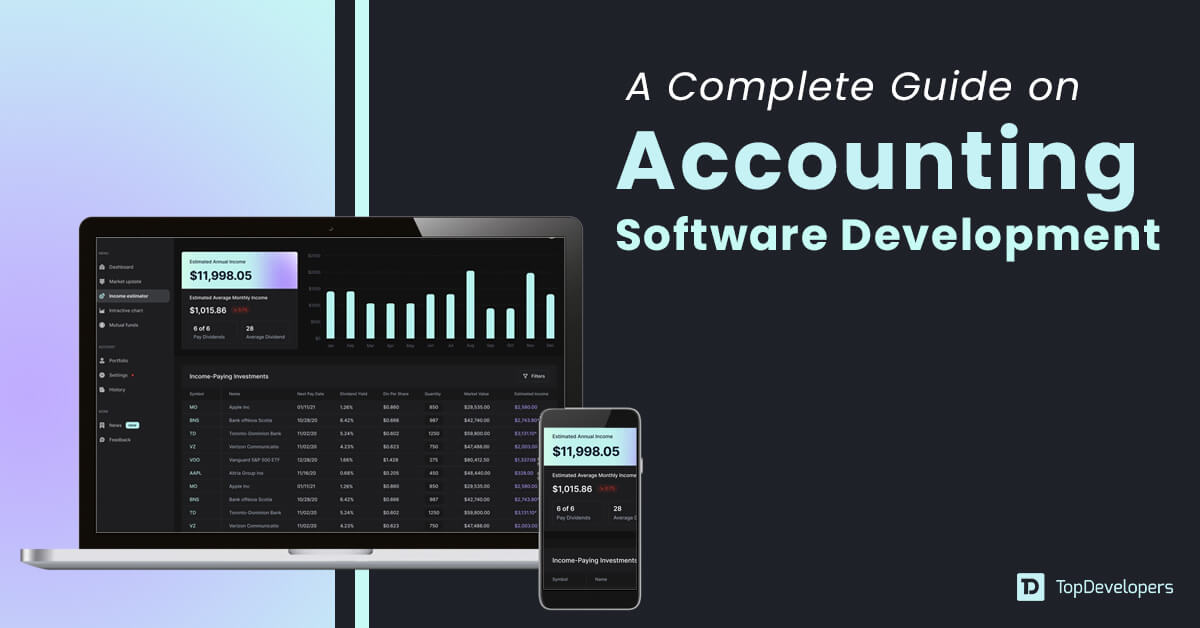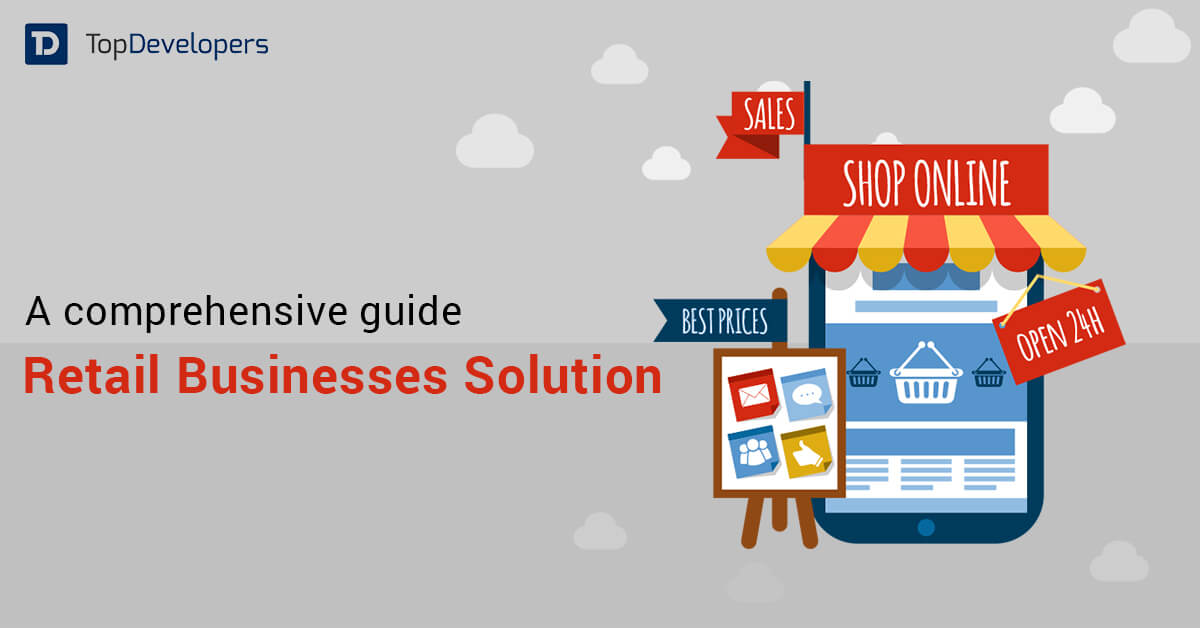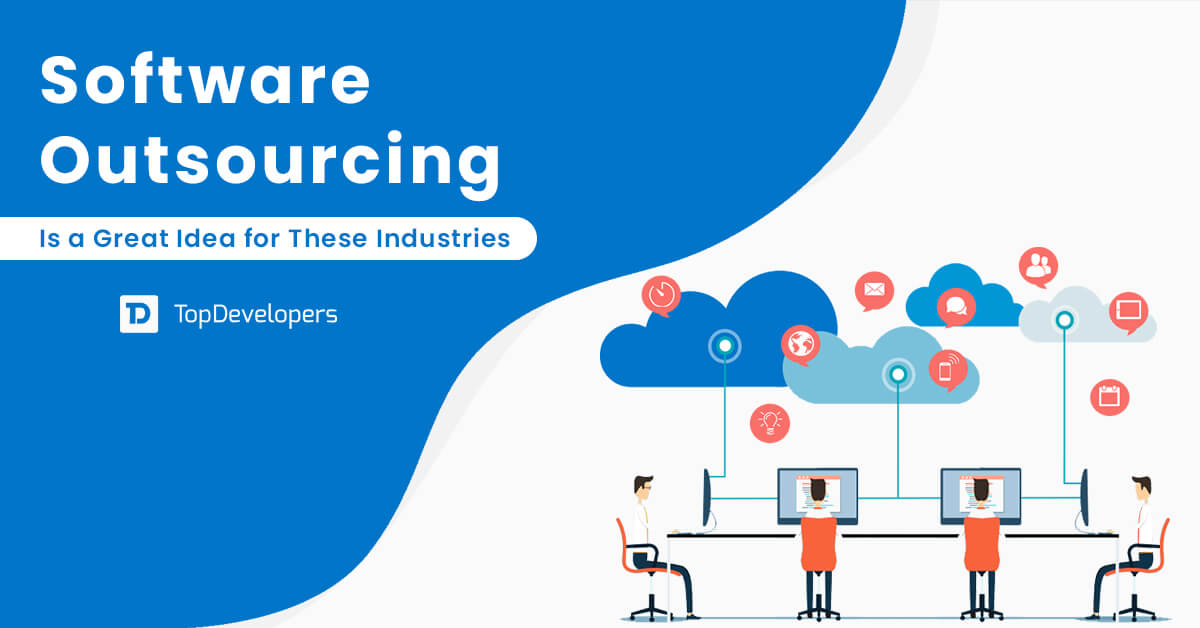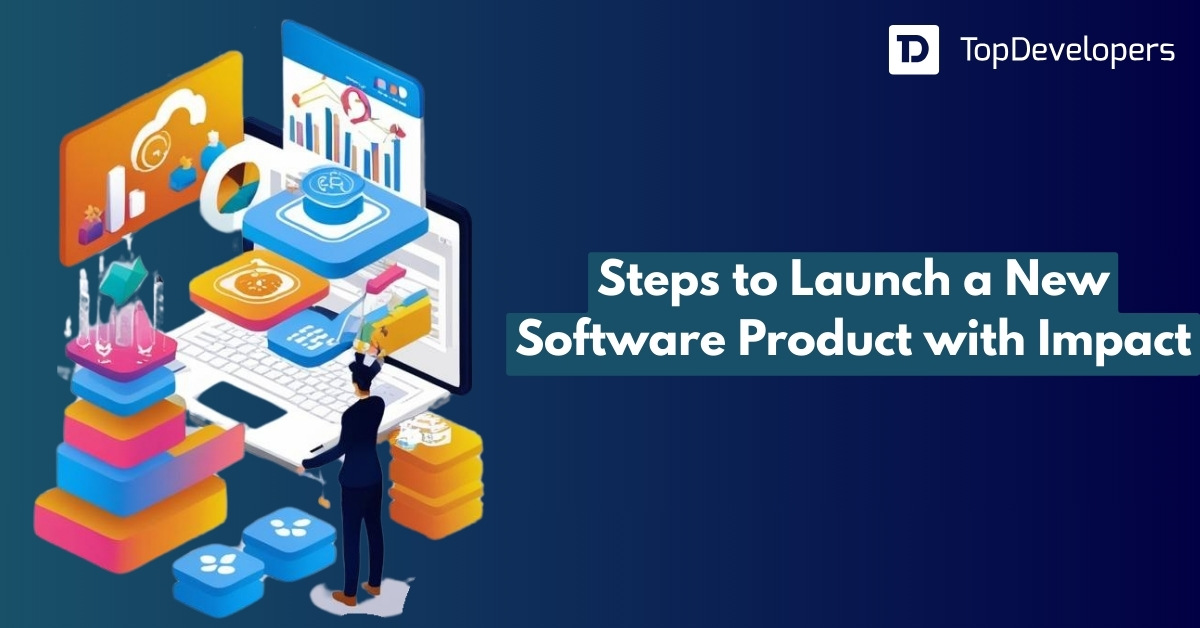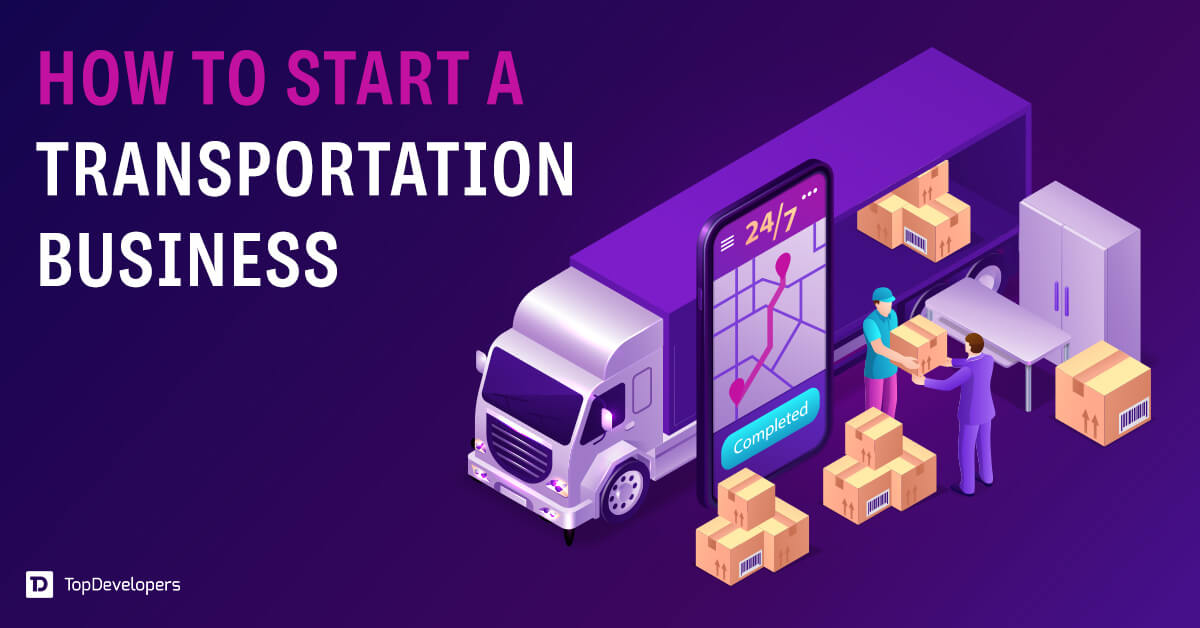
If you own a business, you will need a system that facilitates your business transactions. The best way to do this is to have a Point of Sale (POS) software. A POS system is the software and hardware that allows businesses to make sales in a hassle-free way.
There are various types of POS system software that are easily available in the market today. Moreover, it is always preferred that the business organization partner with the best software development company to develop their POS software and not individual developers. It avoids unnecessary hassles in running the software smoothly.
In this article, we will have a detailed look at what the POS system is and its various types as well. In addition, we will also take a look at the distinct characteristics of the point-of-sale software.
Table of Contents
What is a POS System?
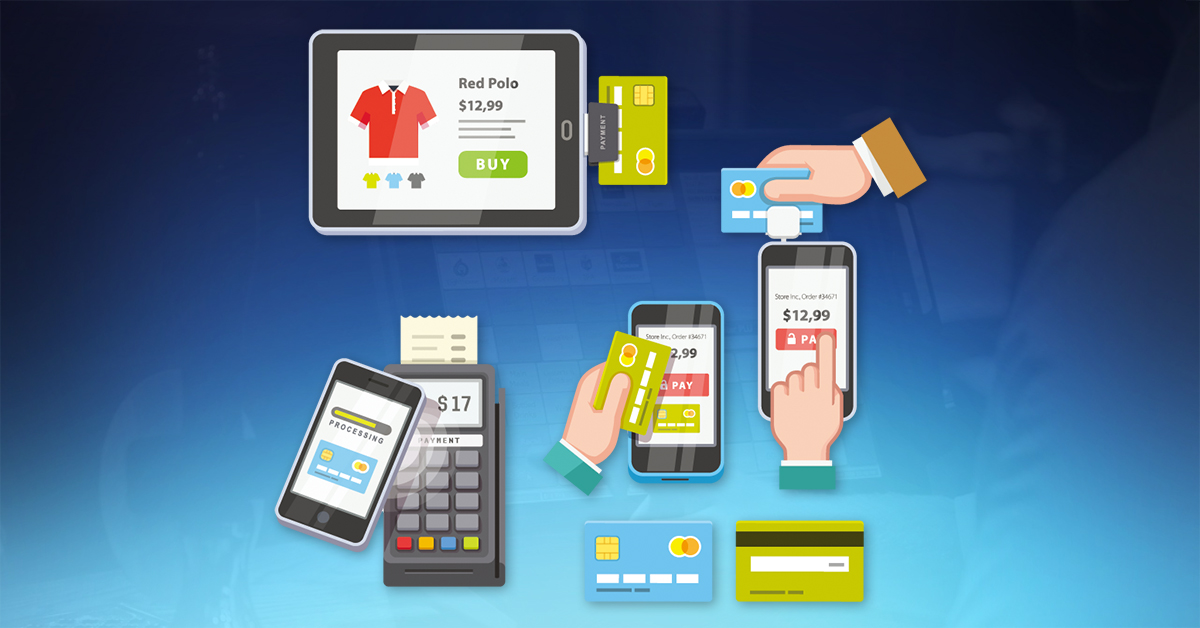
With the inclusion of the latest technologies like Big Data analytics and artificial Intelligence, the periphery of POS systems software has gone beyond just credit card processing. Now it is helping business owners, retailers, etc. to incorporate contactless payment options through POS mobile, eCommerce integration capabilities, etc.
The impact of POS systems on small businesses has been immense over the years. During the dreaded global Coronavirus pandemic, almost 66% of the retail leaders were not willing to leave their POS technology. This is because there are amazing benefits of POS systems for businesses. For example, the reporting features of the point-of-sale software have helped businesses increase their sales by a whopping 200%. This is why retailers and business organizations must be very specific while hiring software developers for developing POS system software.
How does Point Of Sale software work?
The basic purpose of a POS machine is to keep track of the sales and accept payments from the customers. But, the real question is, what does a Point of Sale system do? Well, it actually works in this order:
- Customer deciding to buy a service or a product: For physical stores, the customers can scan the items using the camera on the device. On the other hand, the customers add the items in their cart and press the checkout button for the online stores.
- POS system calculates the price: The POS machine updates everything, including the taxes, and gives the final price to the customers. Moreover, for the retailers, it also updates the count of the item being sold in the inventory as well.
- Payment procedure: The customer then pays the final amount and finishes the purchase process. The payment is done through debit/credit cards, using loyalty points, tap cards, etc. Moreover, the customers can also use the prepaid services rendered by Apple Pay, Google Pay, etc. Here the amount to be paid will be directly debited from the customer’s account.
- Final Transaction: This is a point where the retailer or the business owner finally makes a sale as the point of sale transaction is finalized. After this, a payment receipt is created and the item is either shipped or handed over to the customer.
Different types of POS Software
The POS systems are broadly categorized into five types, they are:
- On-site terminal POS Systems
- Online POS System
- Mobile POS system
- Cloud-based Terminal POS systems
- Self-service Kiosk
Let’s understand these types one by one in detail.
On-site terminal POS Systems
This POS machine system includes all the software and hardware needed by the retailer or the business owner for the point of sale. In this system, everything is on-site. Moreover, the software is kept on the server which is located in the business facility.
The on-site terminal POS systems are a big step up from the regular analog systems, but it still has some flaws.
Here are some of the downsides of the On-site POS system:
- Very high upfront cost: On-site terminal POS system software has a very high upfront cost which can range up to thousands of dollars. The system doesn’t have an ongoing subscription fee.
- Lack of mobility: To view the analytics reports, you have to be on-site on the terminal POS system. Moreover, due to the lack of mobility, it is difficult to make any changes.
- Zero customer support: The on-premise point-of-sale software system doesn’t have any provision of either customer support or software updates. Although you can call the company for maintenance and service, it will be an extra burden on your pocket.
Online POS System
The online POS system works similarly to the mobile POS systems (which we will discuss later). The online POS software renders the software while the retailers or the business owners use their own hardware. This type of POS system is immensely suitable for low-volume businesses only.
Some of the high-flying benefits of online POS systems are:
- Low cost: If you already have hardware for your business, an online POS system becomes very cost-effective. This is because then you will only be required to pay for the software.
- Remote Access: It is easier to access the online POS system as it is a cloud-based POS system. So, if you wish to change the settings or access the data, you can remotely access it.
- Potential mobility: If you use a tablet or a laptop instead of a desktop, the online POS system can be potentially mobile as well.
Mobile POS system
As the name suggests, the mobile POS system also known as mPOS uses mobile devices like smartphones or tablets. Unlike the terminal POS, the mPOS system is a sub-category of cloud-based POS systems as they also operate in the cloud-based universe.
Mobile POS systems are very popular as the value of mPOS is expected to grow 30% annually.
Some of the leading advantages of Mobile POS are as follows:
- Low cost: The software of the mobile POS system has a low monthly subscription. Moreover, it charges minimal fees for payment processing.
- High mobility: The retailers and business owners can use the mobile POS software solution on the go as the system has high mobility. Due to its wide accessibility, this system is very much popular among small business owners, street food vendors, etc.
Cloud-based Terminal POS systems
This Point Of Sale software system is similar to the on-site terminal. But here, the only difference being it has internet access and also uses cloud-based storage. The software for the cloud-based point of sale system is installed in the remote data centers of the POS company.
The terminal of the cloud-based POS system is connected to the internet and it will run only the POS software. This eliminates the possibility of employees using the cloud-based terminal as their personal computer.
Below are some of the notable advantages of the cloud-based point of sale terminal system:
- Customer Support: The cloud-based terminal allows automatic updates that help in rendering robust customer services.
- Affordable: Unlike other cloud-based systems, there is no need to pay a large amount of money upfront in this POS software solution. The cloud-based POS system allows a monthly subscription instead.
- Remote access: The business owners in this POS system can access the software tools from anywhere. The only prerequisite is that the device must be connected to the internet.
- Updates: The system renders the permissions to the POS companies to update their software automatically from any remote location.
Self-service Kiosk
This type of POS system is gaining much popularity as it facilitates the self-checkout process. A self-service kiosk is better for larger businesses that have the space for them. This can prove to be a cost-saving method for the business as well. But it certainly is not the best option for small-scale businesses.
Point of Sale Systems: Pricing
When planning to implement a POS system, you must also consider how much it will cost. The overall cost for POS software development mainly depends on three factors:
Payment Processing Fees
The ability to handle payments is a key component of one’s statement that your Point Of Sale software must be able to perform transactions.
So, what is a business transaction if not an exchange of money?
Businesses are charged for processing several client payments, including credit card transactions, through payment processing fees. Payment processors normally set these charges, while certain POS service providers could insist on using their internal payment processors.
Your POS system should be able to read card magstripes or, at the very least, allow online payments. But if you’re serious about expanding your company, your POS system must support various extra payment options. You should accept a customer’s chosen mode of payment so that you can take advantage of a sale.
Software Cost
Another important factor is the software cost, which is a one-time purchase fee or a recurring subscription fee, depending on your chosen software. The cost of the software also varies from the various features it offers; the more features, the higer the costs. Additionally, you should remember that software updates and ongoing customer support can also be a part of the fees you would pay. So, the level of support and these software updates can affect how much your costs go up. Typically from free to US $400 could be the starting cost you may consider depending upon the POS software and its features.
It is also worth mentioning that when choosing such a crucial software product, you also need to check on a point-of-sale software design as you should evaluate their requirements and goals and choose a package that aligns with them.
Hardware Cost
Finally, the hardware costs are connected with getting all the physical equipment required for the system’s operation. This includes the core POS terminal, which generally contains a touchscreen display, cash drawer, receipt printer, and card reader. So, choose a hardware that suits your goals the best to avoid any extra costs while also attaining your business objectives. Typically, the basic hardware cost for a POS system could range between US $1200 to $2000.
Benefits of POS Software for businesses
Here are some benefits of point-of-sale software development to your business or company:
The POS system can bring a myriad of benefits to their businesses. We have listed some of the top advantages of the POS software for your benefit.
Efficiency Gains
The main goal of Point-of-Sale software is to increase efficiency. Due to implementing POS systems, customers now spend much less time registering, increasing efficiency and order accuracy.
POS software facilitates quicker and more effective checkouts, reducing the demand for staff members during busy times. This decreases the time each client must wait in the queue and the number of employees you need to cover peak hours.
Reduced Error Rate
The capacity of successfully developed Point Of Sale software to drastically lower incidents of mistakes compared to conventional cash register devices is one of its most notable benefits. Carefully scanning each item, barcode scanning, and other functions in many POS systems reduce the rate of checkout errors.
Additionally, color-coded “hot keys” make it easier for staff to choose items quickly and effectively. The emphasis on customer service increases with fewer entry errors, and your bookkeeping service benefits from fewer payment-related issues, which helps to streamline business operations.
Staff Management
Staff management is a crucial component of operations for companies employing hourly or regularly clocked personnel. Leveraging POS system development streamlines this procedure by making it simpler to log time, plan tasks, and report on employee actions. You can also easily generate reports on staff scheduling to ensure you stay within your budget.
Ease Of Use
Another useful benefit of implementing POS application development for your business is the ease of use it provides with all other benefits. As a software tool with so many functionalities, it is common to think it would be complicated. However, POS software is helpful and aligns with ease of use as it is simple to understand even by non-technical staff members. In simpler terms, staff training is made simple, quick, and pleasant through user-friendly interfaces prioritizing usefulness, simplicity, and usability.
POS systems shorten the time needed for employee training. Even staff who struggle with technology can pick up using POS terminals. As a result, training sessions will be less frequent, and more time will be devoted to providing great customer service.
Task Automation
A key component of POS software, task automation is essential for optimizing corporate processes. Task automation may effectively manage routine tasks like sales commissions, inventory control, and purchase order reporting. This results in fewer manual labor and errors, making activities run more smoothly and precisely.
So, if you plan for POS software, now is the right time to search for some good POS software developers and automate your business tasks. Automating daily financial closing, particularly with cloud-based POS solutions, will give your business more ease and assurance.
Payment Flexibility
Another crucial advantage of POS software that firms should embrace is payment flexibility. It’s crucial to stay up with the rapid launch of new payment options in today’s dynamic digital market.
You need a platform to keep up with the constant introduction of alternative payment methods. In cases where a user wants to pay using another method, if they are facing any issue with one, your platform should be able to identify and provide a solution to that. So, payment flexibility will help you retain more customers and offer a great user experience.
This versatility broadens your appeal to a larger audience while improving the consumer experience. You can increase sales and successfully service more consumers while creating loyalty and trust by providing a variety of payment alternatives.
Analytics And KPIs
Finally, POS systems offer the benefit of data analytics, which helps you rely more on data-driven insights than decisions made out of confusion. Point Of Sale software systems offer useful data and key performance indicators (KPIs) to assist organizations in gaining a deeper understanding of their operations.
The following is a short list of KPIs that POS systems may monitor:
- Sell-through rate
- Sales by a retail area
- Average category price
- Conversion rates
- Return rates
- Gross margins
Understanding the potential of analytics and KPIs is essential for organizations looking to improve their overall performance and customer experiences through data-driven initiatives.
Better Sales Strategies
A profound point of sale software allows access to real-time data related to the customers’ buying habits. Thus, it allows retailers and business owners to create new sales and marketing strategies according to the changing trends. Moreover, it saves a lot of time as the entire process is automated.
Data insights will also help the business to evolve with time and be more open to innovations according to state-of-the-art trends.
Quick Payments
The other business advantage of point-of-sale software is that it makes the process of payments faster. The POS system gives a plethora of options to the customers as they can pay by cash, credit/debit card, one-tap payment, contactless payment, and many more. However, the invoice can be printed or sent to the customers directly via their registered phone number or email.
The POS machine will significantly reduce the waiting time of the customers. Moreover, since it takes care of the mundane work, it allows the employees to be more efficient.
Enhance overall customer and employee experience
There is no doubt about the fact that POS system software can be an asset to your business. It renders an amazing customer experience as the POS system allows faster completion of their transaction.
Along with the consumers, it plays a pivotal role in enhancing the employee experience as well. It offers features such as cross-selling to consumers and lures them to buy more products from the platform or offline store. Thus, it helps the employees to maintain their sales target. Moreover, it allows the business organization to approach their customers through multi-channels and offer them a better shopping experience.
Better Security
In a POS system, the data remains more secure from unknown intrusions. Experienced software developers build systems that offer double authentication and minimize any kind of malicious activities.
Moreover, with a cloud-based point-of-sale system, the data backup process is also done in a synchronized order.
24*7 access to data
With the excessive usage of cloud-based point-of-sales systems, retailers and business organizations have 24*7 access to data. In addition, compared to the POS system installed on-site, the cloud-based system is at little risk as far as data loss is concerned. Also, since the data is stored in a cloud-based system, it is better protected from natural disasters such as fires or floods.
Time-saving
POS software system for small businesses and large businesses is a boon as it saves a lot of their time. As mentioned above, it streamlines inventory management, orders, purchasing, etc., and performs various functions automatically.
Moreover, the software has all the ingredients to assist retailers in different management tasks and reduce their overall workload as well.
Cost-reduction
Point-of-sale software plays a huge role in cutting down the overall operational cost. According to a study conducted by Intuit Market Research, a retailer that has revenues of more than $300,000 can reduce cost and save almost $30,000 (10%) with a POS system.
Moreover, the business organization can redistribute in other business activities and increase their ROI even more with the money saved.
Advance Reports
Creating manual reports is a tedious task and is very error-prone. It also becomes difficult to organize these reports and get complete information to understand the state of the business. Now, with a POS system, the reports are automatically created for several aspects of the business.
With advanced reports, data analysis becomes simpler and helps businesses and retailers make better decisions.
Technical support
Several point-of-sale software is capable of rendering technical and technological support. Technical and technological support is essential. But the business organization needs to be careful while choosing their POS software service provider because there are many solution providers who offer many services but do not actually provide them.
Technical and technological support is essential to keep the POS software functioning at the peak of its performance.
Top Software Development Models: What Businesses Need to Know?
Important features of POS software
Implementing a POS system offers several benefits to your business. They are more than just payment processing tools. Below are some important POS software features that will help you analyze whether you should invest in one:
Centralized Multichannel Sales
Multichannel sales managed centrally mark a big improvement in how companies run their operations. This cutting-edge strategy integrates several sales channels into a seamless system, providing numerous advantages for companies of all sizes.
That is where a POS system comes in. It offers a centralized system to manage and streamline in-store, online, social, and multi-locational activities in one place. Most POS systems offer one internally or link with various online sales platforms. With this connectivity feature in your POS software, your in-store system and online sales channels will integrate your sales, payments, customers, and inventory counts into your POS dashboard.
Marketing Tools
Now, you cannot overlook what role marketing plays in branding your business. However, integrating the marketing process while handling several other business sectors would take much work. In this regard, POS systems are great for you. They come with inbuilt marketing tools that enable companies to successfully sell their goods and services, interact with their target market, and meet their marketing objectives.
Some of the most common POS-integrated marketing capabilities are SMS/email outreach or social network connectors, which are available. When choosing a POS, consider whether these features are crucial to you and your company and the marketing techniques you’ll implement.
Billing and order processing
This is basic functionality that a point-of-sale software should have. The POS system software must be able to process the bills and accept payment through different payment modes.
In addition, it should be able to generate order invoice and send to the end customer via multiple channels.
Cross channel returns management
A POS returns management module has features such as facilitating replacements and refunds and also accepting cross-channel results. A POS system should be able to do multiple returns for one sale at different times. Along with that, the point of sale software must capture other details like the shopkeeper’s name, the reason behind the return of the item, and other remarks.
Sales monitoring and reporting
If the point of sale system cannot generate robust reports, it is of no use. The system must report hourly, daily, weekly, monthly, and yearly according to the business requirements. Continuous reporting will ensure that the merchants have a proper idea of areas where the company is improving and where it needs a revamp.
In addition, the advanced POS reporting module has features such as:
- Information related to stock management
- Demands of the product based on the season
- Business forecast based on sales trends
Inventory and Stock management
The inventory management module feature of the Point Of Sale software must provide complete accountability at the store levels all the time. In addition, the POS software must make stock adjustments and capture the reason behind the stock adjustments.
The inventory management of the software must provide:
- Information about inbound and outbound inventory
- View of ‘lot-wise’ inventory
- Transaction history about the in, out and within movements
Employee management
Don’t be surprised, it is true. Yes, POS software has an employee management feature that helps the business organization in many ways. It helps them manage the employee hours, sales performance, staffing levels, etc. to track the employees’ productivity.
In addition, business firms can track employee activity by linking it with every transaction. This will aid immensely in separating the good from the bad and take needed actions to improve the productivity of the bad performers.
Loyalty programs and gift cards
Good POS software allows the business organization to track customer loyalty incentives. Also, the POS system needs to manage the ever-increasing sales of gift cards every year.
Customer relationship and experience
In point-of-sale software, the customer data and the customer’s purchase history get stored. Thus, business organizations can use it to render more personalized services to customers. In addition, the data is beneficial for advertising and provides insights into the needs and requirements of the customers.
Point of Sale System: Key Components
Payment Processing
Seamless transactions can affect the quality of customer service that your business provides. So, it’s important that the payment processing is smooth and without any errors. POS systems are great at leveraging these features as they ensure secure and efficient business transactions.
Online Processing
Online processing capabilities allow businesses to take payments via their website or e-commerce platform. So, if your target audience is global, you need various payment options on your website to avoid any problems for your global audience.
POS software play a great hand in the online processing of payments, either through your website or your mobile phone. They allow you to accept payments securely, increasing trust among your customers and boosting your online presence.
However, there are certain unique requirements for online processing, particularly regarding security. Make sure any online point-of-sale system you use has a secure payment gateway and ensures that the payment information of your consumers is encrypted.
Magstripe
As many consumers still use magstripe cards for transactions, support for these cards is essential. Ensure your POS software can read magstripe cards so that every customer has a smooth payment experience. On the other hand, if your company conducts business in person, your point of sale system must be equipped to handle actual card payments.
Chip cards
Your credit card reader must support EMV payment, a universal standard for chip-based debit and credit card transactions, to accept payments from cards containing a chip. Your POS software should enable chip card transactions as more people switch to EMV (Europay, Mastercard, and Visa) chip cards for increased security. This function guards against scams for both your clientele and your company.
Contactless payments
Today are the days of contactless payments and UPI. Since COVID-19, the rising number of contactless payments has been in demand. POS systems also offer contactless payment options like those made through Google Pay, CRED, and Apple Pay. It also offers alternatives to keep up with changing client preferences, thus increasing user experience.
Transaction management
As an owner, it’s obvious that you would have to manage all transactions in your company. In this scenario, POS software simplifies transactions for you, your staff, and your clients and reduces the need to implement an additional system, reducing costs and maintenance.
POS systems allow businesses to use features such as Order tracking, receipts, and transaction history, which are useful for transaction administration. This capability enables you to manage refunds or returns, maintain correct records, and deliver first-rate customer support.
Industry-specific features
To perform outstandingly and be different from your competitors, leveraging software that will help you analyze industry-specific features to meet your company’s particular requirements is important. Whether you are a restaurant, retail, or healthcare provider, POS systems can easily cater to your industry to offer versatile and unique business needs.
Closing Thoughts
With time and the advancement of technology, point-of-sale software has gone way beyond just processing sales. Feature-rich POS software system enhances the efficiency of the employees. It also renders important insights to improve overall business productivity.
If you are looking to build customized POS software for your business, share your project requirements with TopDeveloeprs.co; and we can help you to find the right software development company to build your own POS software. While preparing the list of the top software developers, we have ensured that every company included in the list has a robust software development process.
 Gillian Harper
| Oct 9, 2023
Gillian Harper
| Oct 9, 2023
A professionally engaged blogger, an entertainer, dancer, tech critic, movie buff and a quick learner with an impressive personality! I work as a Senior Process Specialist at Topdevelopers.co as I can readily solve business problems by analyzing the overall process. I’m also good at building a better rapport with people!
